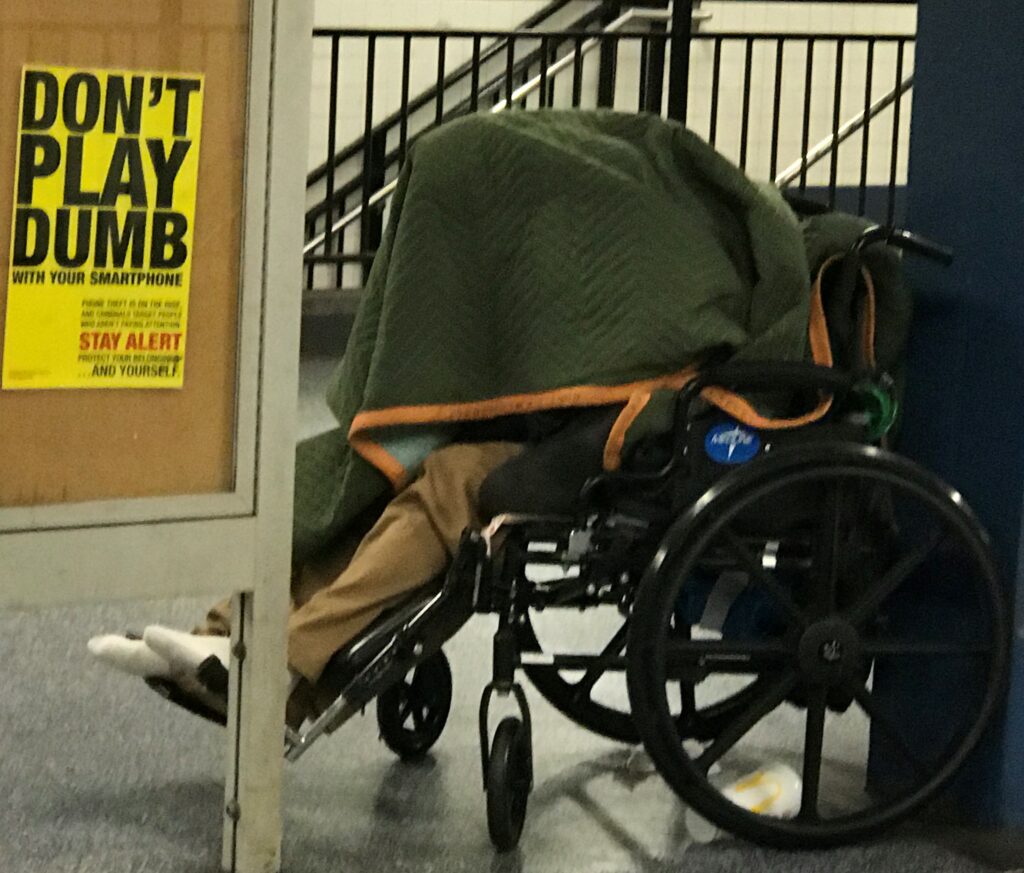Stockton Poll: N.J. Residents See Rise in Mental Health Issues Since Pandemic

|
|
|
A majority of New Jersey adults or someone they know has experienced mental health problems, and the problems have gotten worse during the coronavirus pandemic, according to a Stockton University Poll on public health and other issues released today. The statewide poll of 640 New Jersey respondents found 58% reporting that they or someone close to them has experienced mental health issues, while 39% said they have not and 2% were unsure. Of those saying they had experienced problems, 68% said that mental health had gotten worse during the two-year-old pandemic. Only 7% said the problems had improved, and 20% said they had not changed during the pandemic, according to the poll taken by the William J. Hughes Center for Public Policy at Stockton University. “The public is confirming what experts have been saying about the pandemic, that mental health has taken a beating as we try to manage the coronavirus,” said John Froonjian, director of the Hughes Center. “The pandemic has increased stress levels on multiple fronts: economic, social, employment, health care, schooling, loss of loved ones. It all takes a toll.” Smoking in casinos Among several public health areas explored in the poll was the question of whether New Jersey’s indoor smoking ban should be extended to Atlantic City casinos. Sixty-two percent supported prohibiting smoking on casino floors, while 31% opposed the proposal and 6% were unsure. However, fewer South Jersey residents (59%) supported the casino smoking ban than in northern New Jersey, where 66% supported it, said Hughes Center Research Associate Alyssa Maurice. Opioid and drug addiction One aspect of mental health problems involves drug addiction. Nearly four in 10 (39%) of poll respondents said they or someone they know personally has been affected by the opioid crisis. More than one in three (35%) characterize drug addiction as a big problem in their community, and 40% said it is a minor problem where they live. “In a state of 9 million people, that’s a lot of suffering,” Froonjian said. Nearly 60% said they have not been affected by the opioid crisis, and 17% did not believe it was a problem at all in their community. Comparing regions, South Jersey showed the highest rate of respondents impacted by the crisis (46%) and the highest rate of respondents who said addiction is a big problem where they live (43%). This rate was 30% and 34% for Central and North Jersey, respectively. State residents were split on whether the state provides adequate and affordable treatment in mental health and addiction services. On mental health treatment, 36% agreed strongly or somewhat that treatment options in New Jersey are adequate and affordable, but 40% disagreed. One in four (24%) were not sure how to rate treatment services. Regarding addiction treatment services, 36% agreed the state’s options are adequate and affordable, while 33% disagreed and 31% were not sure. Homelessness Respondents were asked to characterize the problem of homelessness in towns where they live. A plurality of 38% said homelessness was not a problem at all in their communities. Thirty-five percent said it was a minor problem, and 23% said it was a big problem. These rates also differed by region. Nearly one in three South Jersey residents (32%) said homelessness is a big problem where they live, while 24% of North and 16% of Central Jersey residents said the same. A plurality of those in both the North and Central regions (40% and 42%, respectively) said it was not a problem at all, while only 27% of those in the southernmost counties agreed. The Hughes Center for Public Policy cosponsored a panel discussion on April 14 on how homelessness affects women. In that panel, local service providers said most people don’t see homelessness as a problem until it becomes visible and they see homeless individuals on the street, or if affects someone they know. A videorecording of the 90-minute discussion, which was cosponsored by the Atlantic County Advisory Commission on Women, may be viewed here. (https://www.youtube.com/watch?v=CuFABAsBa6k)
Other topics explored in the Stockton Poll included the following.
Note: For the purposes of the poll, the state’s regions were identified by the following counties: North: Bergen, Essex, Hudson, Hunterdon, Morris, Passaic, Somerset, Sussex, Union, Warren Central: Burlington, Mercer, Middlesex, Monmouth, Ocean South: Atlantic, Camden, Cape May, Cumberland, Gloucester, Salem
Full results of the poll are on the Hughes Center website, stockton.edu/hughes-center.
Methodology The poll of New Jersey adult residents was conducted by the Stockton Polling Institute of the William J. Hughes Center for Public Policy April 4-13, 2022. Live interviewers who are mostly Stockton University students called cell phones and landlines from the Stockton University campus. Opinion Services supplemented a portion of the fieldwork. Overall, 88 percent of interviews were conducted on cell phones and 12 percent on landline phones. A total of 640 New Jersey adult residents were interviewed. Both cell and landline samples consisted of voter list and random digit dialing (RDD) sample. Data are weighted based on U.S. Census Bureau American Community Survey data for New Jersey on variables of age, race, ethnicity, education level, sex and region. The poll's margin of error is +/- 3.8 percentage points at a 95 percent confidence level. MOE is higher for subsets. About the Hughes Center The William J. Hughes Center for Public Policy (www.stockton.edu/hughescenter) at Stockton University serves as a catalyst for research, analysis and innovative policy solutions on the economic, social and cultural issues facing New Jersey, and promotes the civic life of New Jersey through engagement, education and research. The center is named for the late William J. Hughes, whose distinguished career includes service in the U.S. House of Representatives, Ambassador to Panama and as a Distinguished Visiting Professor at Stockton. The Hughes Center can be found on YouTube, and can be followed on Facebook @StocktonHughesCenter, Twitter @hughescenter and Instagram @ stockton_hughes_center.
|





